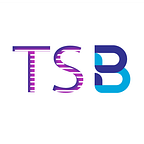Blockchain in Land Registration (Part 37)
Welcome to the 37th part of the 100-part series on Blockchain.
Real estate has always been a lucrative sector for the purpose of investment around the globe. And the land being the most expensive asset in this class has often been the focal point for various frauds, crimes, and fights.
Challenges in land registration
Titles and deeds are an integral part of the land registration process and provide the required safety net for the buyers. But in many countries, even these land titles are not a foolproof method to prove one’s ownership of the property. And this is because of the opaque, ineffective, and inefficient land record maintenance system.
In the current scenario, the land registration process in many developing countries is highly manual and paper-intensive. Thus, making it inefficient and vulnerable to tampering.
And on top of that land registration process involves multiple government bodies for authentication and verification. Transfer of land title requires the same processes and paperwork to be repeated and duplicated several times, thus leading to extended processing time and cost.
Blockchain — The Solution
With Blockchain, the whole process of land registration can be streamlined. And that’s why it has been garnering attention from many governments for its capability to record land titles, mutations, digitized maps, spatial data, and settlement records in a transparent, secure, and tamper-proof manner.
Now let’s see how the Blockchain will work for land registrations:
(i) First of all, the geo-coordinates of the land will be uniquely coded and recorded into the Blockchain.
(ii) Each property would also be linked to a smart key that would be held by the owner of that piece of land.
(iii) Further smart contracts, when combined with Blockchain, can be used to fasten the transfer of land entitlement and other related transactions.
Let’s understand it through a real-life scenario. Mr. X wants to buy a property from Mr. Y. A smart contract will be agreed upon by Mr. X & Mr. Y,
where the title of the property would be transferred to Mr. X automatically on receipt of the agreed fund into Mr. Y’s account.
This transparent and immediate change of land title in the ledger will also speed up the property registration process. And as a result, this would lead to cost savings and greater efficiencies for land registrations.
Implementing Blockchain to record property transactions will also help in better and effective property management as the transactions, and other related information would be updated in almost real-time.
A blockchain-based system will bring all the stakeholders including the concerned government bodies, sellers, and buyers on a single platform. And whenever a land registration or title transfer process is initiated on the Blockchain — all the stakeholders can view the transaction with distributed owner rights.
Thus, a blockchain-based system with a smart contract provides a transparent and immutable trail of land ownership.
If you liked this article and want to know more about Blockchain, NFTs, Metaverse, and their applications, click the below link.
Happy learning!
